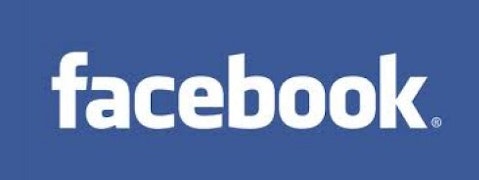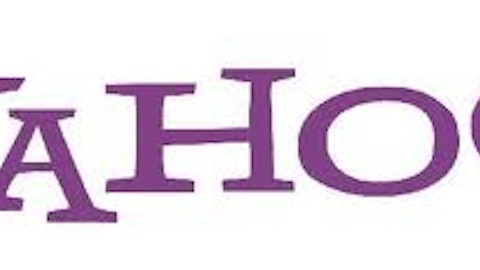I heard it when the company came public. So many people wanted to buy Facebook Inc (NASDAQ:FB) stock. In fact, many people were talking about buying Facebook stock on Facebook itself. How has that worked out for them? Uh…not so well. S&P 500 up 28% (not even including dividends), Facebook Inc (NASDAQ:FB) down 36%.
Now, the stock sits under $25 (as of this writing). And what do I hear again? People wanting to buy Facebook Inc (NASDAQ:FB) stock because it’s so “low.” Since I’ve had so many people ask me about it, let’s lay it out and put it in perspective.
Bad IPO
By now, everybody knows how terrible the IPO was. It opened just shy of $40 and headed straight down, not stopping until the stock value had been cut in half. A bad IPO does not necessarily doom a stock forever. Remember that this is an actual company with real operations. If the stock price had opened around $20 or so, it might still be an underperformer, but people wouldn’t be crying so much. Let’s not beat-up the company simply over a bad IPO.

Market cap
We start to run into trouble when we look at the market cap. Currently, Facebook Inc (NASDAQ:FB) has a market cap over $59 billion. For perspective, I could total the market caps of LinkedIn Corp (NYSE:LNKD) (more on them later), salesforce.com, inc. (NYSE:CRM), and Citrix Systems, and still not come up with $59 billion of market cap. Say what you will about those three companies, but why would I think that Facebook is worth more than all three of them combined when it hasn’t proven long-term profitability?
Saturation
One of the biggest problems with Facebook is that it’s already reached a very high user count. It’s not like there is a vast market (aside from China) that is untapped for them. Facebook Inc (NASDAQ:FB) is trying to figure out how to monetize the network it already has. The situation would be far better if it had already monetized it and was working on expanding its network.
The problem is that Facebook now has to figure out not only how to monetize its network, but it also has to figure out how to keep its network. There’s plenty of competition from other companies. Those companies haven’t reached Facebook’s scale yet, but that doesn’t mean they won’t try.
Valuation
It’s tempting for investors to gravitate to the P/E ratio to start most valuation discussions. However, in a company that is valued for high-growth (whether it should be or not), the P/E can be misleading, especially when it is sky-high. The problem here is that such situations are generally reserved for small companies in the early stages of their growth. They may not have much earnings because they are building an infrastructure, or spending a ton on marketing efforts. Facebook should be well past that point given its scale.
Regardless, I won’t belabor the P/E issue, but instead look to a simpler metric: Price-to-Sales. Unless you’re subject to some goofy accounting rules, revenue doesn’t lie. So, it’s a bit easier to compare the company’s price to its sales. In this case, Facebook Inc (NASDAQ:FB)’s Price-to-Sales is a staggering 10.8! Since I promised some perspective, here are the Price-to-Sales for some other companies:
Apple – 2.5
Microsoft – 3.8
Google – 5.4
LinkedIn – 16.9
salesforce.com, inc. (NYSE:CRM) – 7.7
Citrix – 4.6
Again, you’re paying quite a premium in hopes that Facebook can hit it big and figure out how to monetize its network…quickly. That’s not a risk I’m willing to take until it can show some better growth. A good product and a lot of users don’t automatically convert into dollars.
Earlier, I promised some additional thoughts on LinkedIn Corp (NYSE:LNKD). LinkedIn also operates an online network, but it is focused on connecting professionals with a business focus to its content. Users can pay for a premium account that can help with recruiting, selling, job searching, etc.
Whereas Facebook stock has been a loser, LinkedIn stock has been a winner for investors since its IPO.

However, LinkedIn faces similar valuation issues as Facebook. Thankfully, the market cap is only $18.8 billion (that’s still high) compared to the $59 billion of Facebook. But, its P/E and Price-to-Sales (16.9) are sky-high.
I like LinkedIn Corp (NYSE:LNKD) because it has two things that will allow it to stick around for a while. First, it is focused heavily on the professional market. If you give businesses a relatively inexpensive tool to help sell, market, and recruit, then it can be difficult for companies to switch off, especially if most all of the audience it desires is already on the network.
Second, LinkedIn Corp (NYSE:LNKD) will constantly be adding new users in the form of college graduates. Certainly not everyone uses LinkedIn, but a large percentage of professionals do. It is an easy way to stay connected to others and find jobs when needed.
Bottom line
We have one stock that has been great (LinkedIn Corp (NYSE:LNKD)) and one stock that has been terrible (Facebook). But what we really care about is where they are headed. Unfortunately, the valuations on both stocks are very expensive. In both cases, an investor is betting heavily on rapid growth.
Facebook Inc (NASDAQ:FB) has a taller hill to climb because it already has the users, but needs to show investors that it’ll make money in the long-term. LinkedIn is making money on its current user base, but needs to continue expanding upon that and adding new users.
I’m wary of both companies at these valuations. If nothing else, wait for a pull-back and a big discount before you buy these stocks.
The article Stay Away From These Social Giants…For Now originally appeared on Fool.com and is written by Dave Zaegel.
Dave Zaegel has no position in any stocks mentioned. The Motley Fool recommends Facebook and LinkedIn. The Motley Fool owns shares of Facebook and LinkedIn. Dave is a member of The Motley Fool Blog Network — entries represent the personal opinion of the blogger and are not formally edited.
Copyright © 1995 – 2013 The Motley Fool, LLC. All rights reserved. The Motley Fool has a disclosure policy.





